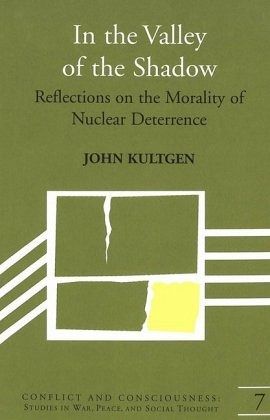Nicht lieferbar

In the Valley of the Shadow
Reflections on the Morality of Nuclear Deterrence
Versandkostenfrei!
Nicht lieferbar
In the years since Hiroshima, the United States has developed a policy of nuclear deterrence involving flexible response capped by assured destruction (FRAD). Implementing this policy has erected a massive system of armaments personnel, and a control and command structure that affects every area of national life. This work argues that the consequences of this structure, and the policy that motivates it, have been uniformly bad, and the nation's nuclear stance is profoundly immoral. The arguments of philosophers, strategic thinkers, and political leaders are defended and criticized in the cours...
In the years since Hiroshima, the United States has developed a policy of nuclear deterrence involving flexible response capped by assured destruction (FRAD). Implementing this policy has erected a massive system of armaments personnel, and a control and command structure that affects every area of national life. This work argues that the consequences of this structure, and the policy that motivates it, have been uniformly bad, and the nation's nuclear stance is profoundly immoral. The arguments of philosophers, strategic thinkers, and political leaders are defended and criticized in the course of this argument.



